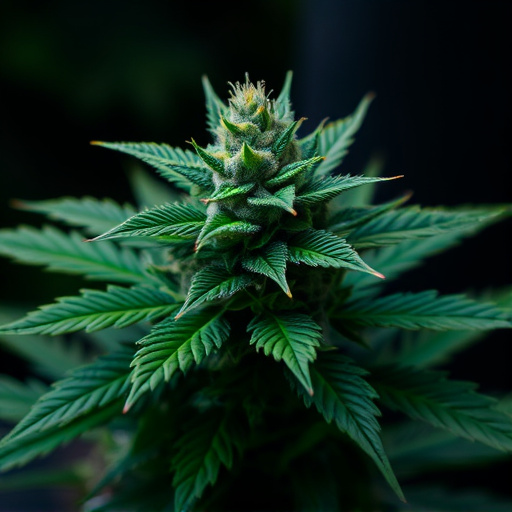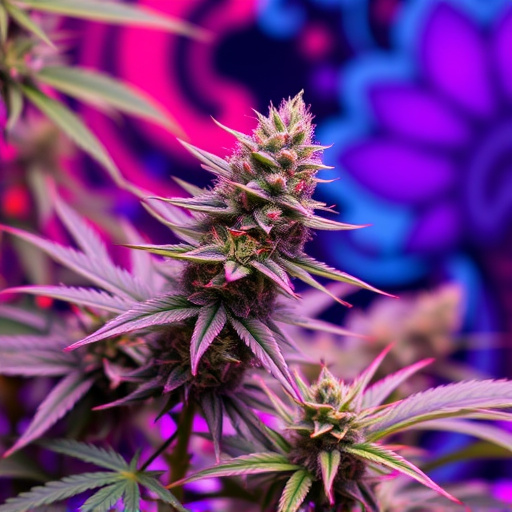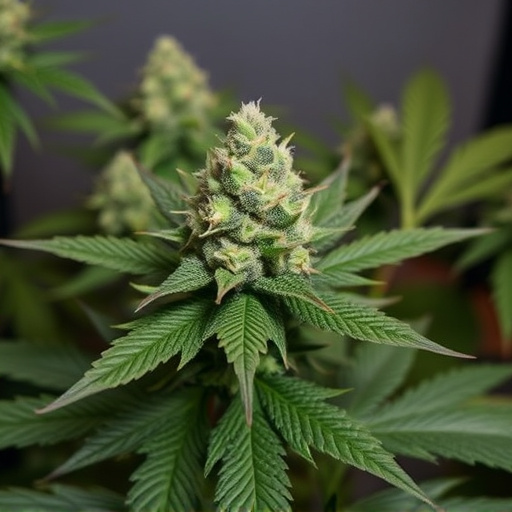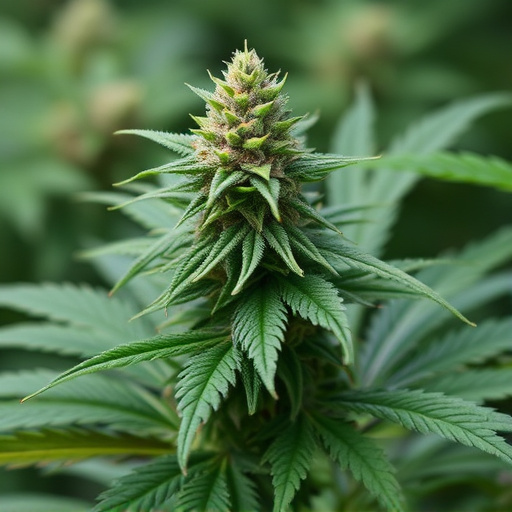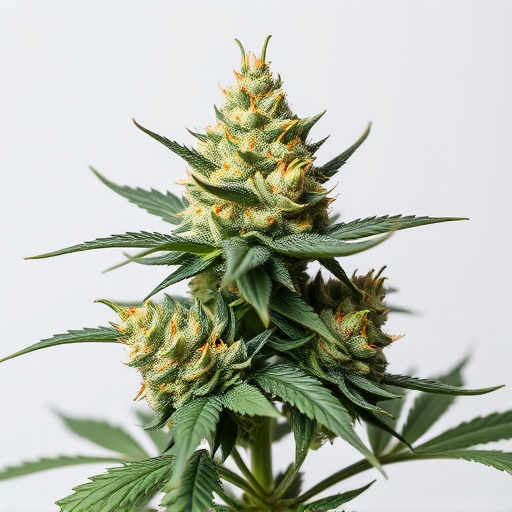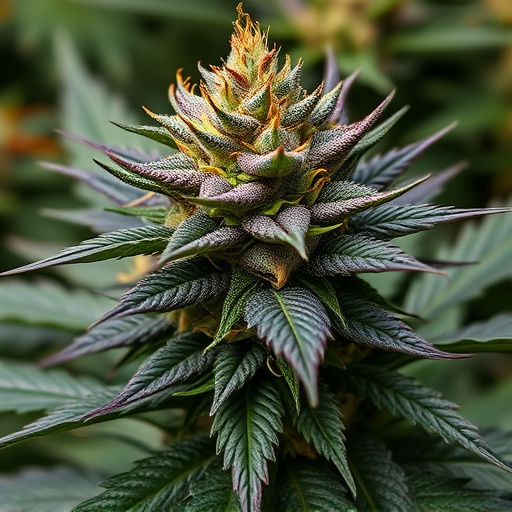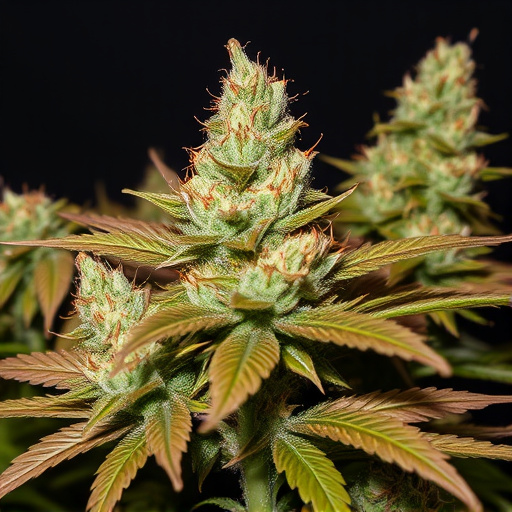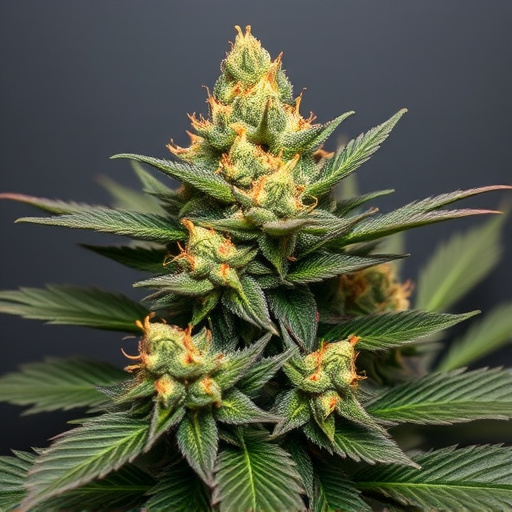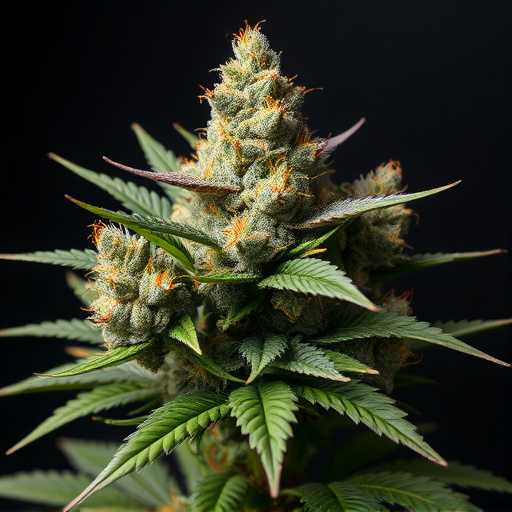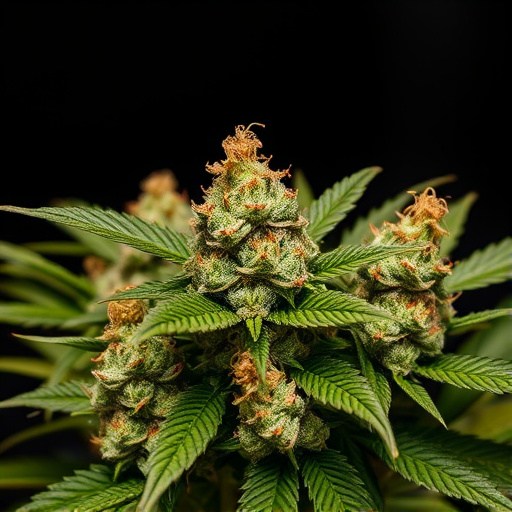Indica dominant strains of cannabis have gained popularity for their potential mental health benefits, including stress, depression, and insomnia relief. High THC content in these strains allows them to interact with the body's endocannabinoid system, influencing mood, appetite, and pain perception. CBD, though non-psychoactive, also contributes to anti-inflammatory and anxiolytic effects. Studies suggest indica dominants promote relaxation, sleep, and stress reduction, making them a therapeutic choice for managing mental health challenges. However, individual responses vary, and more research is needed to fully understand their potential.
Can cannabis flower offer a natural path to improved mental health? This question has sparked growing interest as the legal status of cannabis shifts globally. This article delves into the potential benefits of cannabis, focusing on indica dominant strains known for their calming effects. We explore scientific research examining cannabis’ role in managing anxiety, depression, and PTSD, providing insights into how specific compounds interact with our endocannabinoid system to promote mental well-being.
- Understanding Cannabis Flower and Mental Health Connections
- Indica Dominant Strains: Potential Benefits for Mental Well-being
- Exploring Scientific Research on Cannabis and Mental Health Disorders
Understanding Cannabis Flower and Mental Health Connections
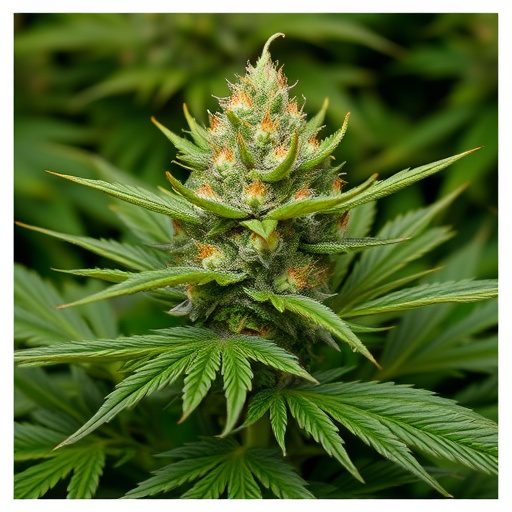
Cannabis flower, with its diverse compounds and terpenes, has long been associated with potential mental health benefits. While research in this area continues to evolve, many advocate for its therapeutic properties, especially when it comes to specific strains like indica dominant varieties. These strains are known for their calming effects, often promoting relaxation and reducing anxiety—common mental health challenges that cannabis is said to address.
The connection lies in the plant’s ability to interact with our endocannabinoid system (ECS), which plays a role in regulating mood, appetite, and pain perception. Indica dominant strains, with their higher levels of THC (tetrahydrocannabinol), can stimulate certain receptors in the ECS, potentially offering relief from symptoms associated with stress, depression, and insomnia—all while providing a sense of calm and well-being.
Indica Dominant Strains: Potential Benefits for Mental Well-being
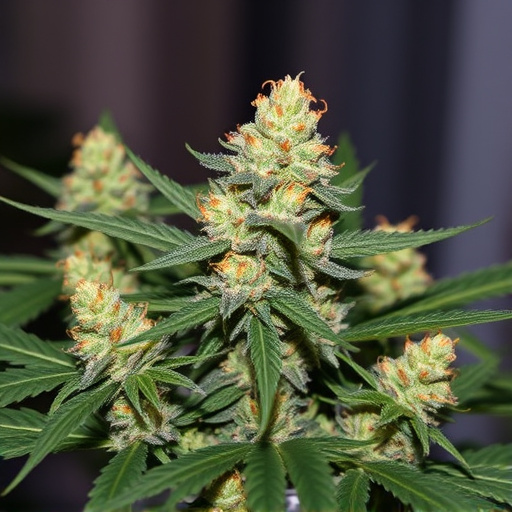
Indica dominant strains of cannabis have gained attention for their potential benefits on mental well-being. These varieties, characterized by their heavy, sedative effects, often contain higher levels of tetrahydrocannabinol (THC) and cannabidiol (CBD). THC is known for its mood-altering properties, which can help alleviate symptoms of anxiety and depression in some individuals. Meanwhile, CBD, despite not having psychoactive effects, has anti-inflammatory and anxiolytic properties that contribute to mental health improvement.
Studies suggest that indica dominant strains may promote relaxation and sleep, two critical factors for maintaining good mental health. The calming effects of these strains can help reduce stress levels and improve overall mood. Additionally, the pain-relieving properties of CBD can alleviate chronic pain or inflammation associated with mental health disorders, further enhancing quality of life. However, it’s important to note that individual responses to cannabis vary greatly, and more research is needed to fully understand its therapeutic potential.
Exploring Scientific Research on Cannabis and Mental Health Disorders
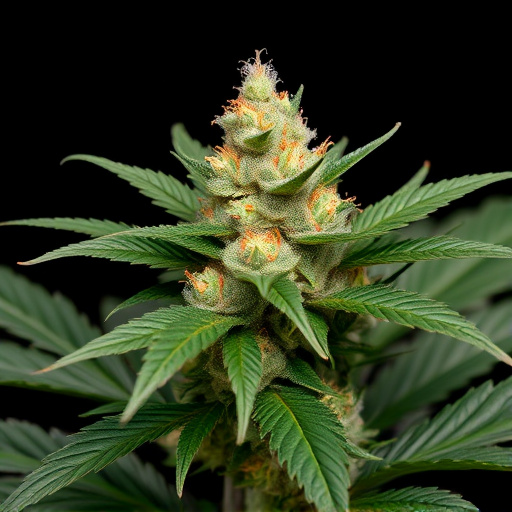
Cannabis has been a subject of interest in the scientific community for its potential impact on mental health, especially with the growing popularity of medical marijuana. Numerous studies have explored the relationship between cannabis and various mental health disorders, focusing on both therapeutic benefits and possible risks. Research suggests that certain strains, particularly indica dominant varieties, may offer relief for symptoms associated with conditions like anxiety, depression, and post-traumatic stress disorder (PTSD).
These strains tend to have higher levels of cannabidiol (CBD), a non-psychoactive compound known for its anti-anxiety and mood-stabilizing properties. Scientific investigations into the efficacy of cannabis as a treatment option have shown promise, with some studies indicating reduced anxiety, improved sleep quality, and enhanced overall well-being in participants using medical marijuana. However, it’s essential to approach this topic with caution, as more research is needed to fully understand the complex interplay between cannabis and mental health.
While the relationship between cannabis flower and mental health is complex, scientific research suggests that certain components of the plant, particularly those found in indica dominant strains, may offer potential benefits for managing specific mental health disorders. However, it’s crucial to approach this topic with caution and seek professional guidance before considering cannabis as a treatment option. Further studies are needed to fully understand its effects and establish safe, evidence-based practices for its use.




